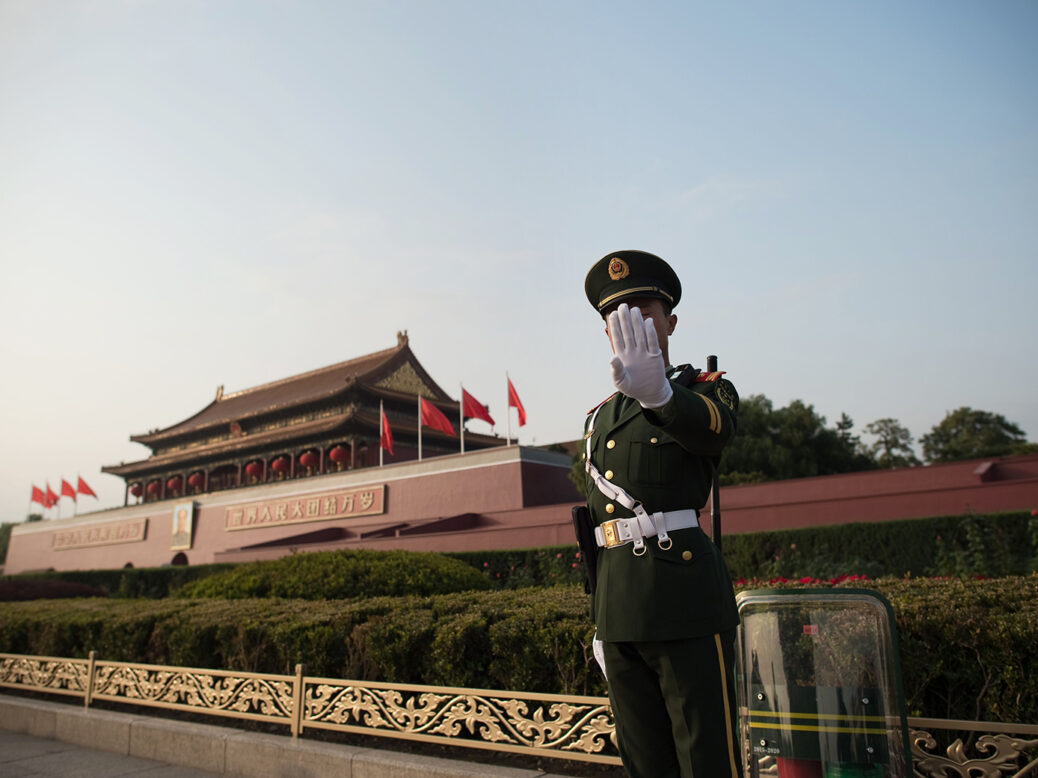
Fewer than five civil servants working in the Foreign Office have been taught to speak Cantonese by the department since 2017 despite the ongoing crisis in Hong Kong.
The Foreign, Commonwealth and Development Office (FCDO), which was led by Liz Truss until last month, has been accused of risking its ability to “confront the challenge of the Chinese Communist Party regime”, according to one Hong Kong observer, by training so few to speak the language. Figures obtained by the New Statesman show that no employee has been taught to speak Cantonese to a C2 level, which is the highest level of proficiency.
Hong Kong was handed over to China in 1997 under the principle of “one country, two systems”, which enabled the region to remain largely autonomous. Following the passage of the oppressive national security law in June 2020, the UK accused China of breaching the agreement and set up the British National (Overseas) visa scheme to enable Hong Kongers to settle in the UK. Since the scheme opened in January 2021, more than 110,000 Hong Kongers have been granted visas to come to the UK.
“The idea that the Foreign Office has trained fewer than five Cantonese speakers, as well as a dearth of Mandarin speakers, is truly shocking,” said Benedict Rogers, the founder of Hong Kong Watch and author of the forthcoming book The China Nexus. “We have a moral, legal and historic responsibility to Hong Kong and as part of exercising that responsibility we need to have a good, accurate and well-informed understanding of what is happening there,” he said.
Rogers said language ability was particularly important given “the crackdown on independent media in Hong Kong and the constraints on reliable English-language sources of information, research and analysis”. He added: “If the UK is to confront the challenge of the Chinese Communist Party regime… we need to better understand what is happening, and as part of that we must enhance the language capabilities of the Foreign Office.”
In total, 70 FCDO staff have departmental qualifications in Mandarin and 68 in Russian. FCDO qualifications are only valid for five years and those with qualifications that have lapsed or have learnt the language elsewhere are not included in the statistics. On average the figures mean that 14 FCDO staff learn Mandarin a year and 14 learn Russian.
Learning Mandarin and Cantonese at the FCDO requires 22 months of training while Russian requires 14 months. The estimated maximum cost for a single officer to complete the course is £68,670 for Mandarin, £79,600 for Cantonese and £33,387 for Russian. These figures include tuition costs, overseas accommodation and travel costs.
An FCDO spokesperson said: “This figure only relates to staff who have taken a FCDO exam in Cantonese to a level of near fluency in the last five years. It does not include staff who have passed an exam externally or over five years ago or local staff who are fluent in the language.”
[See also: Xi Jinping’s parallel reality in Hong Kong]





